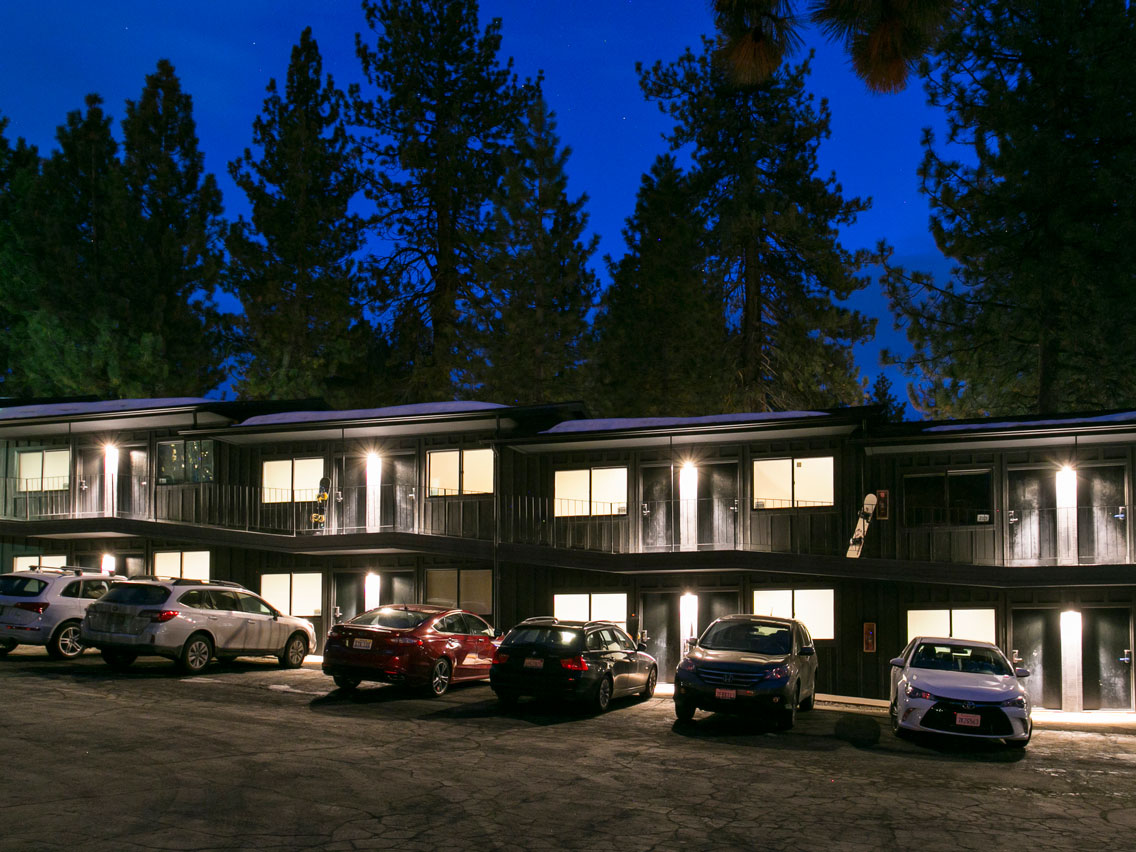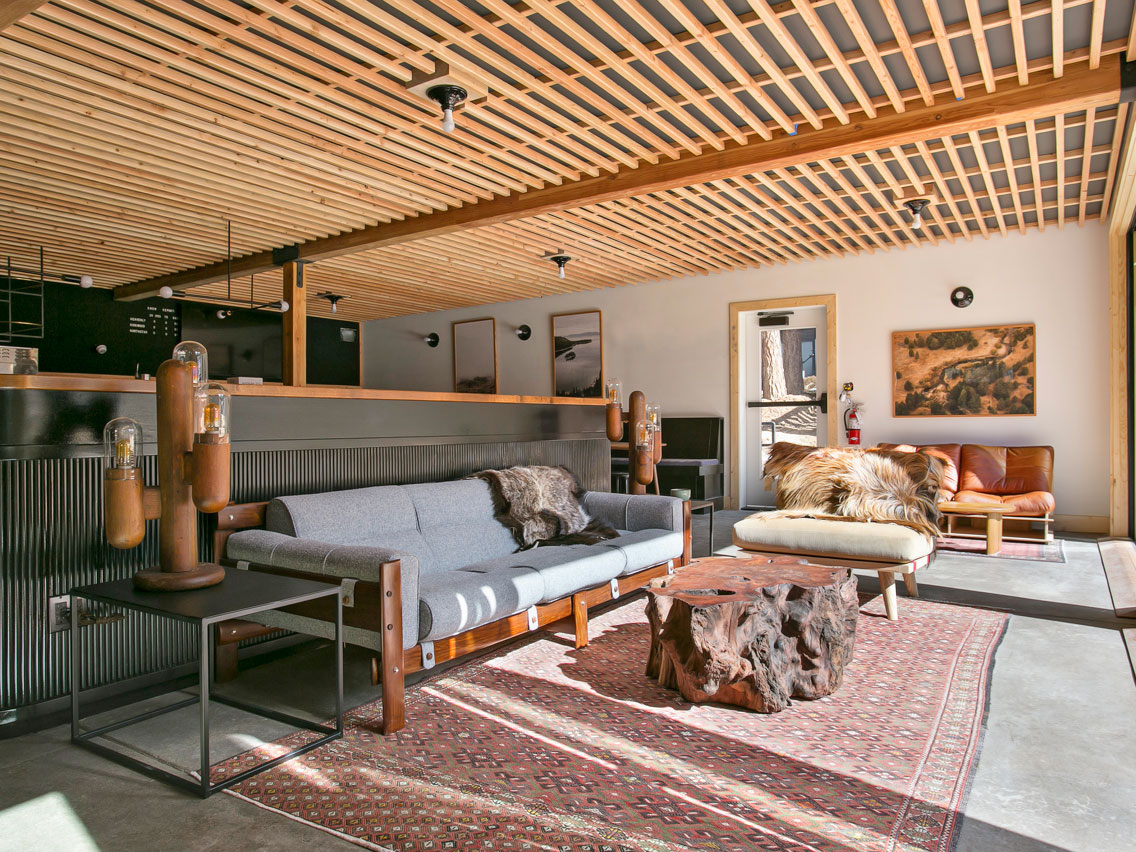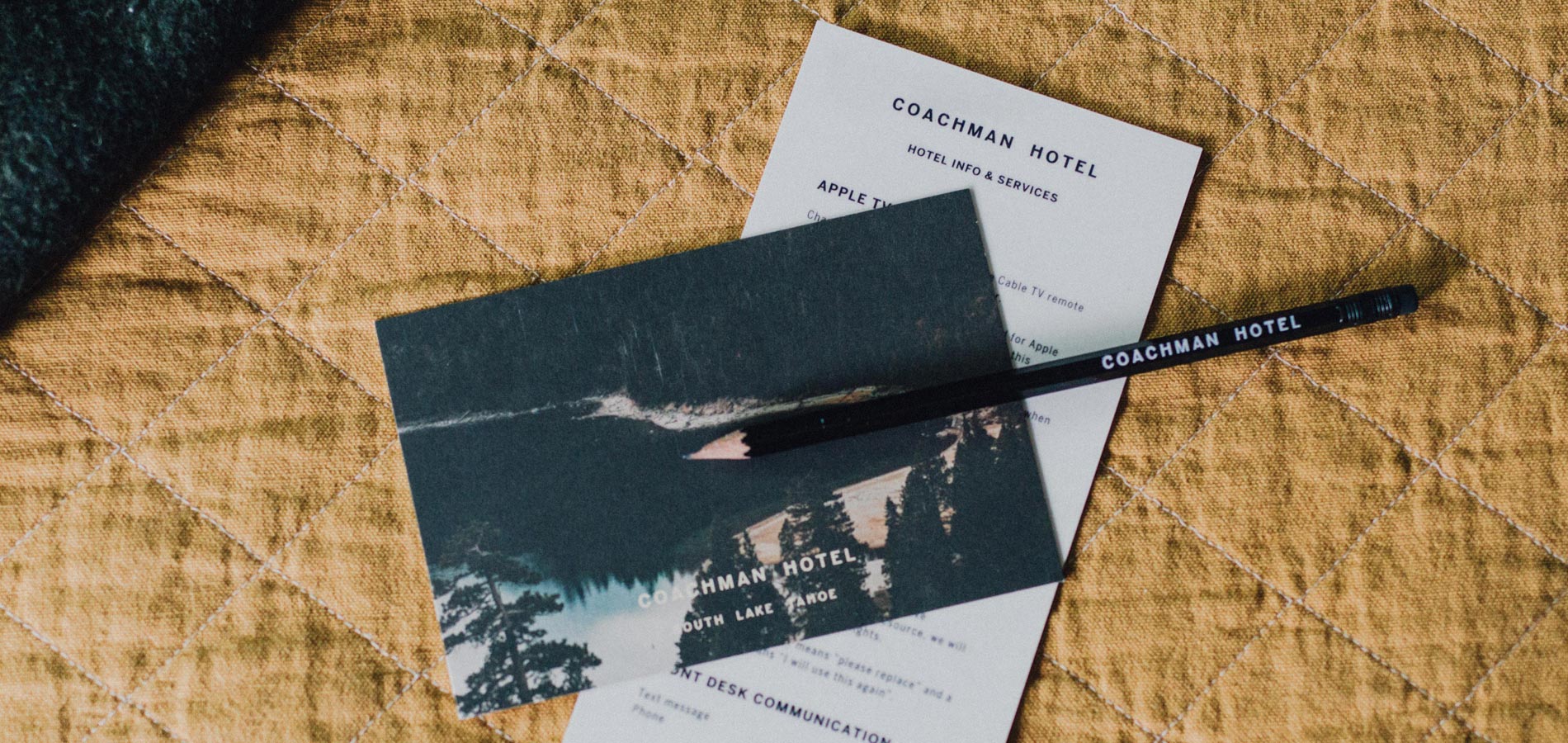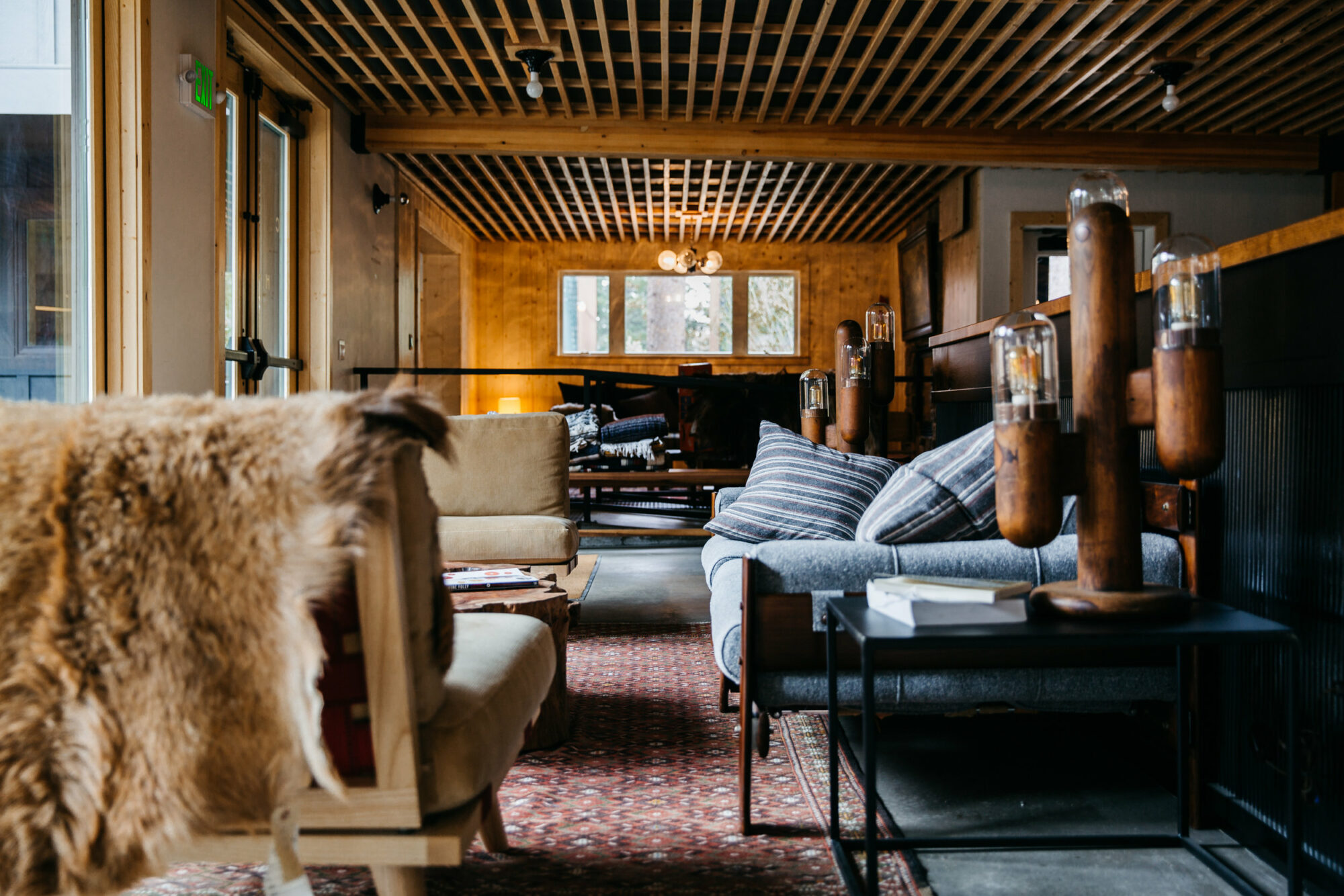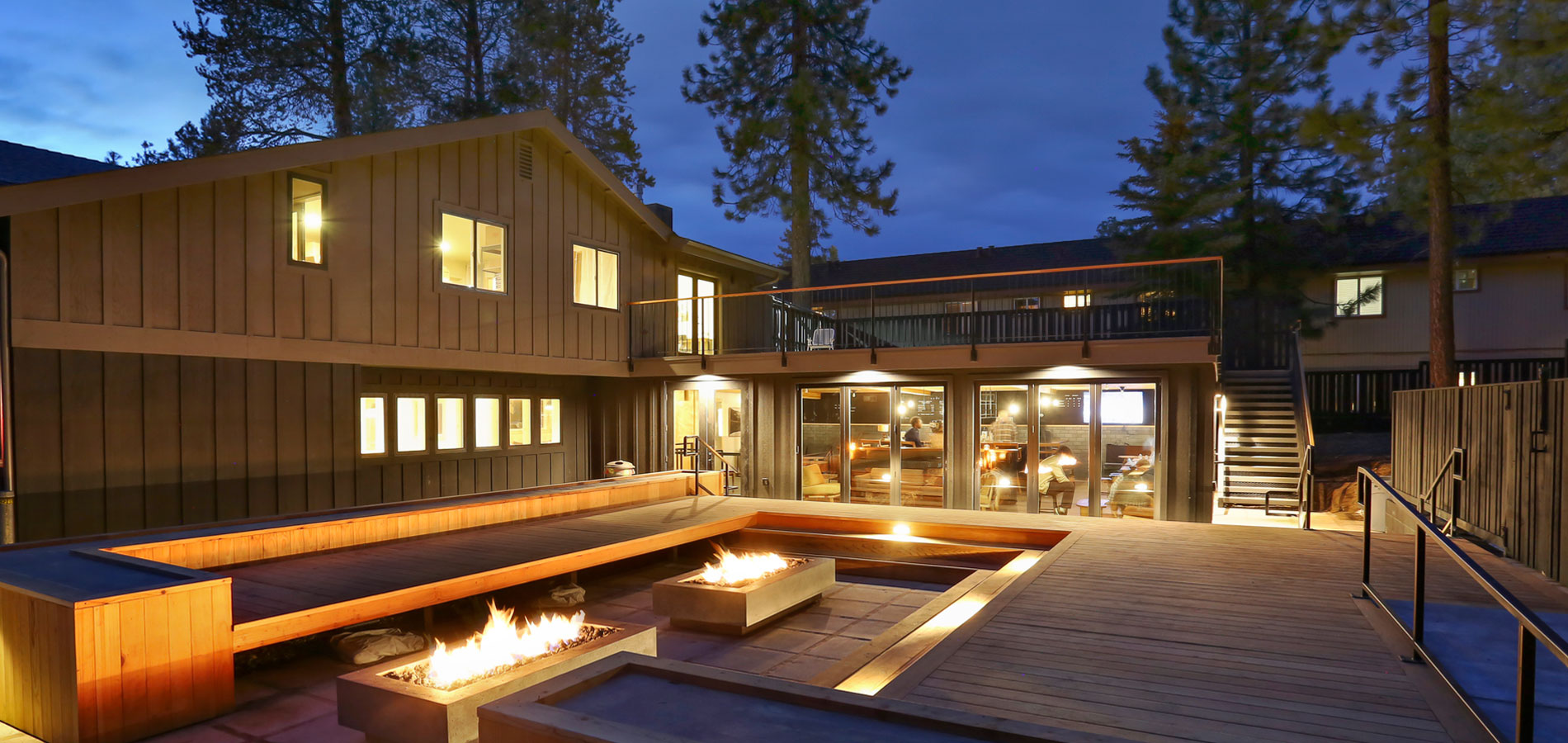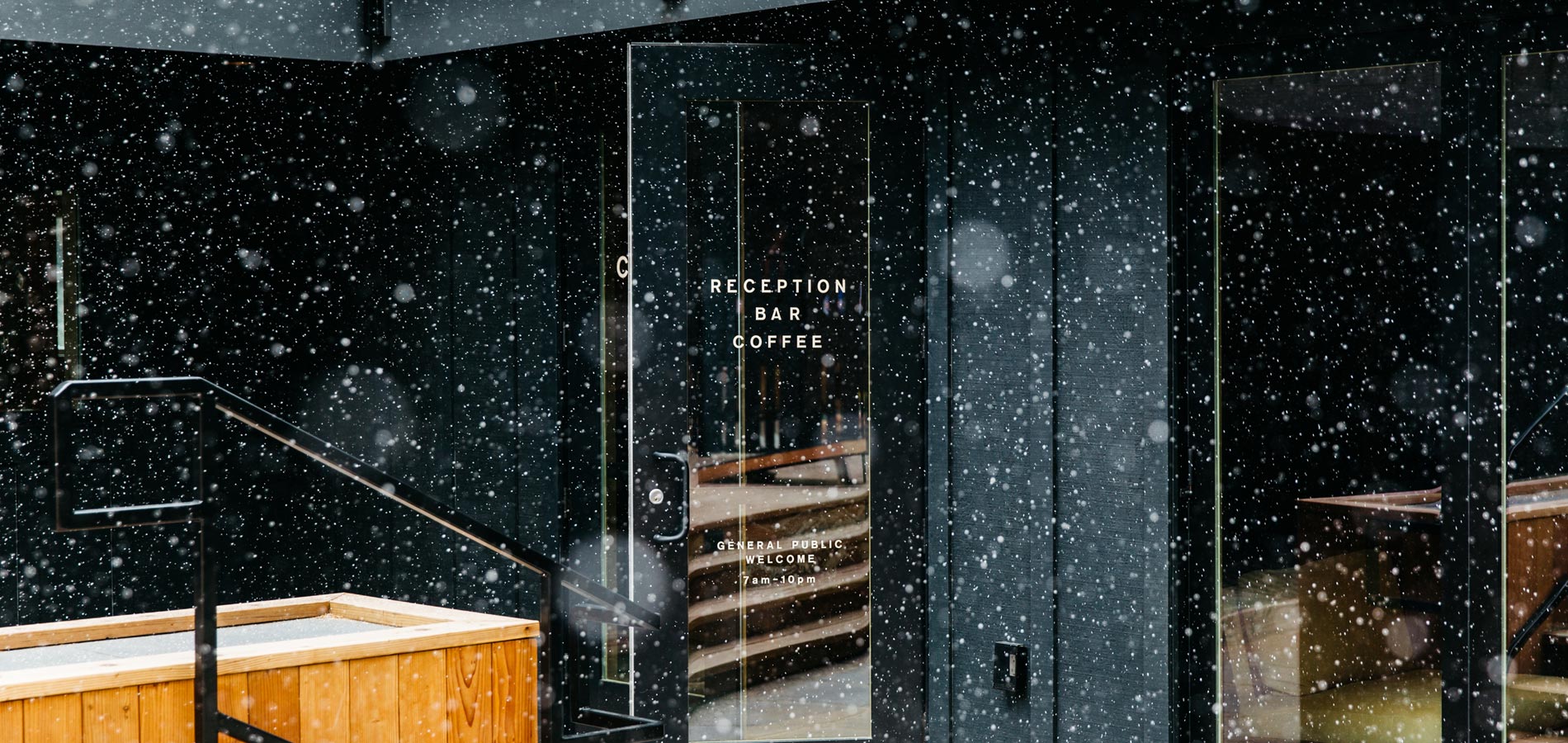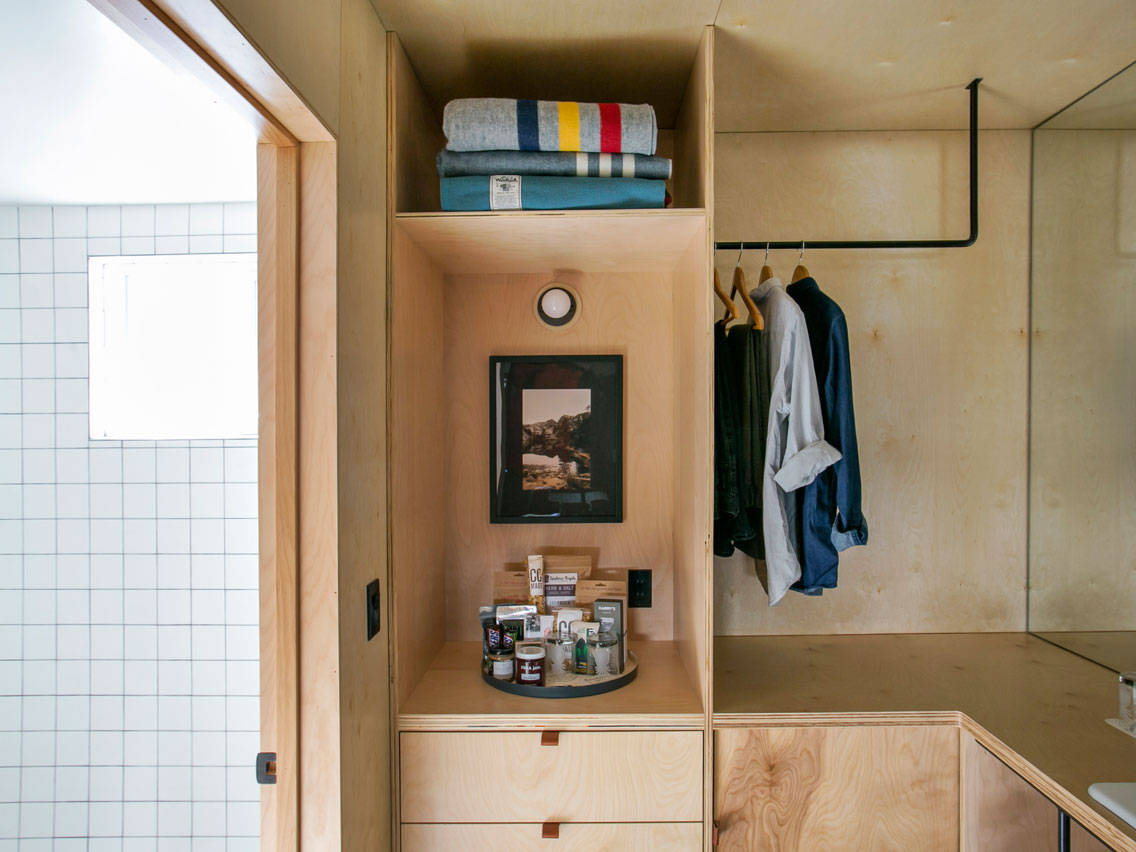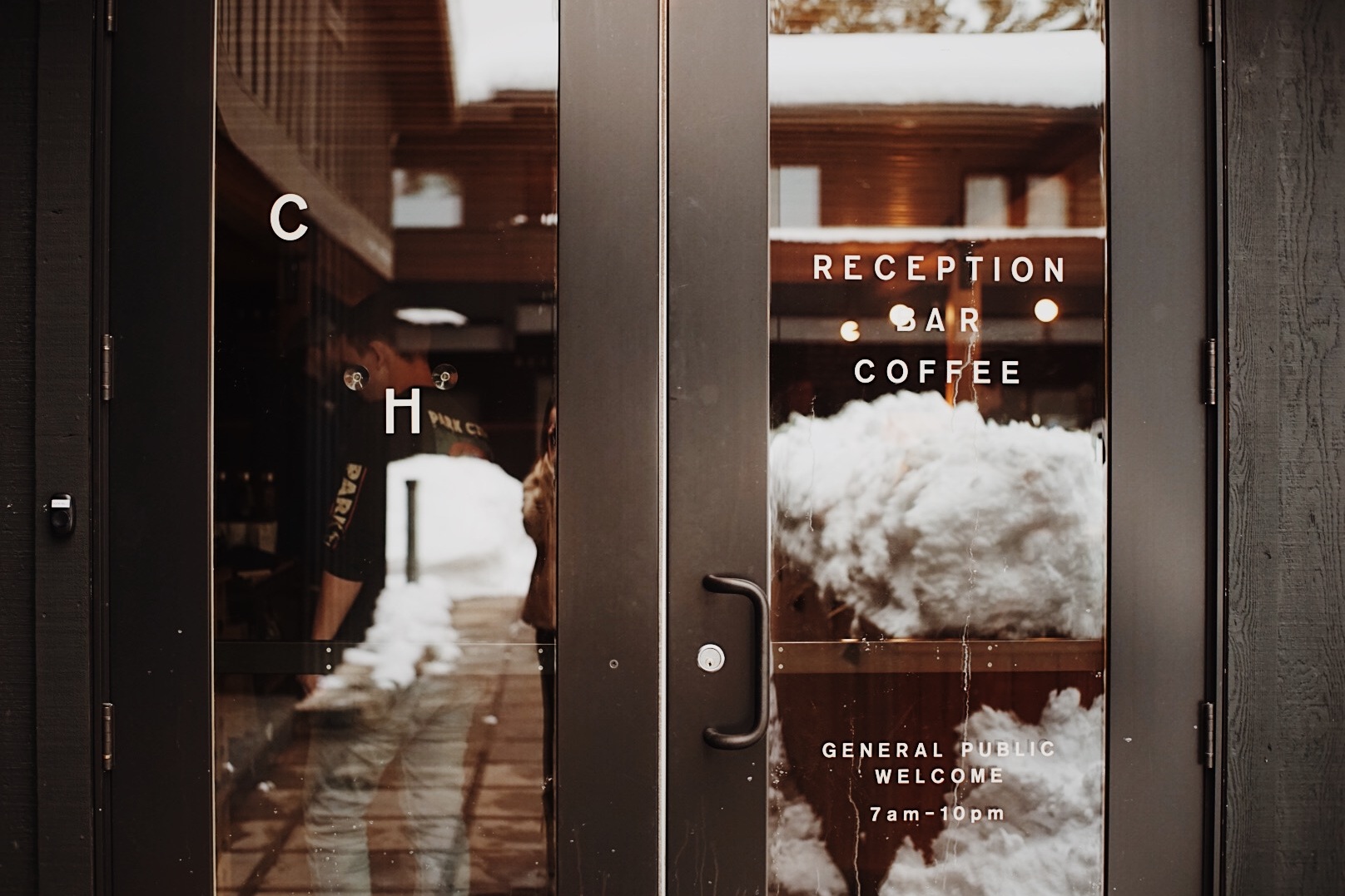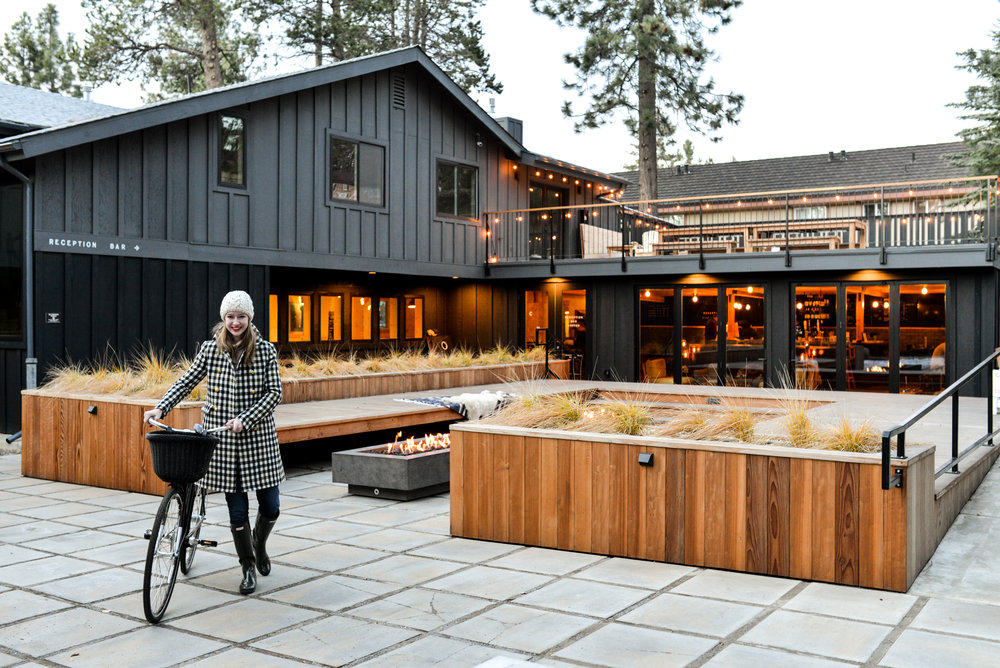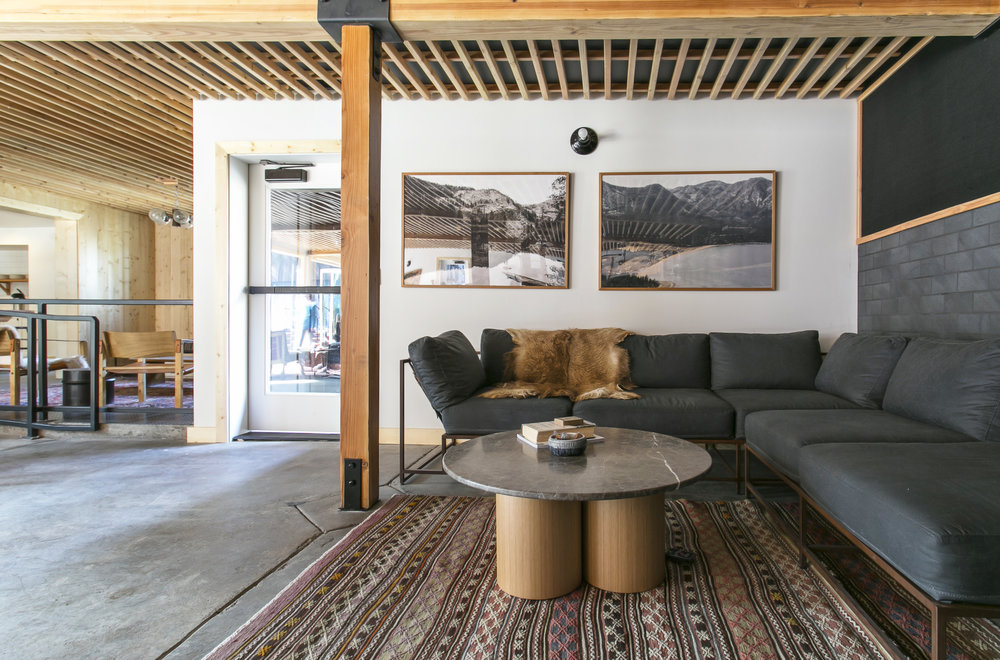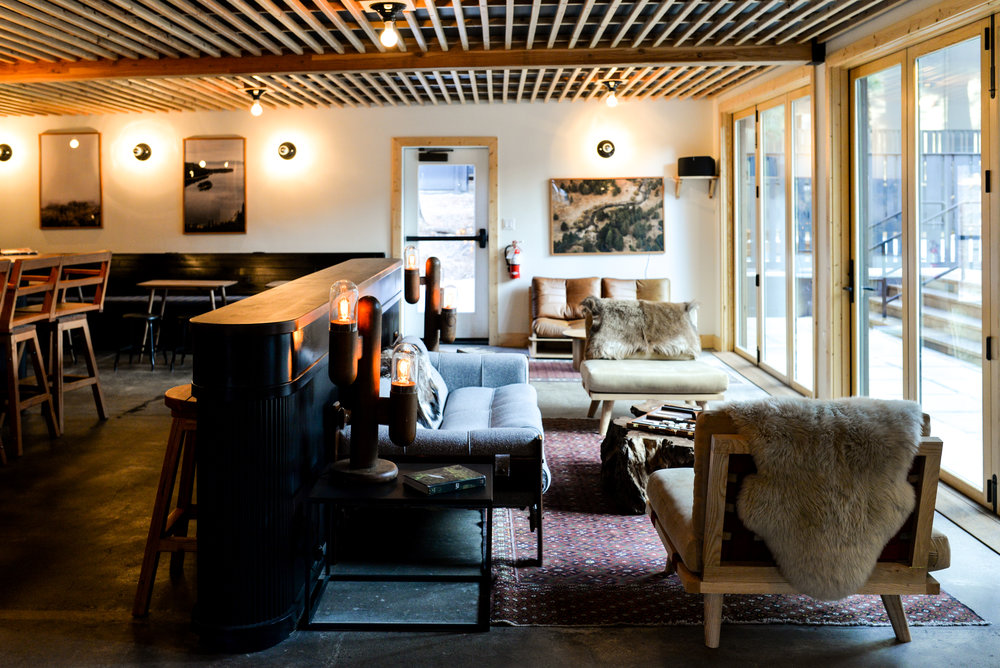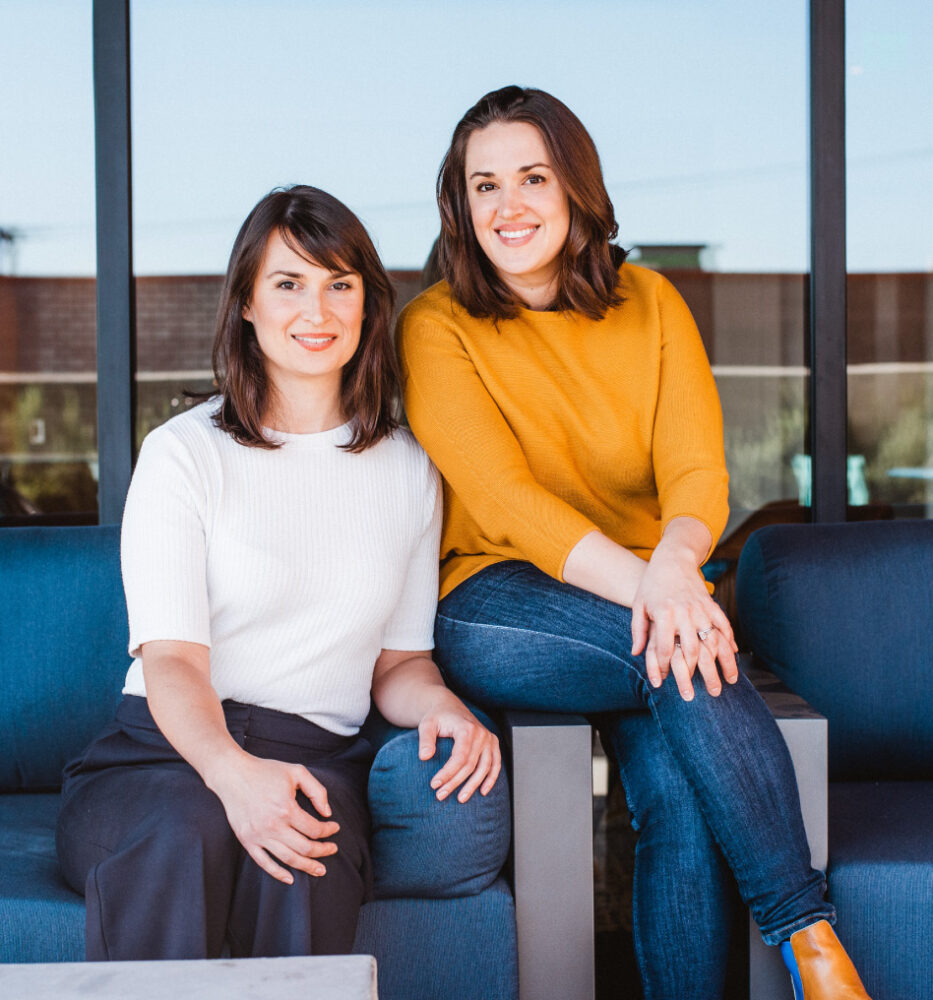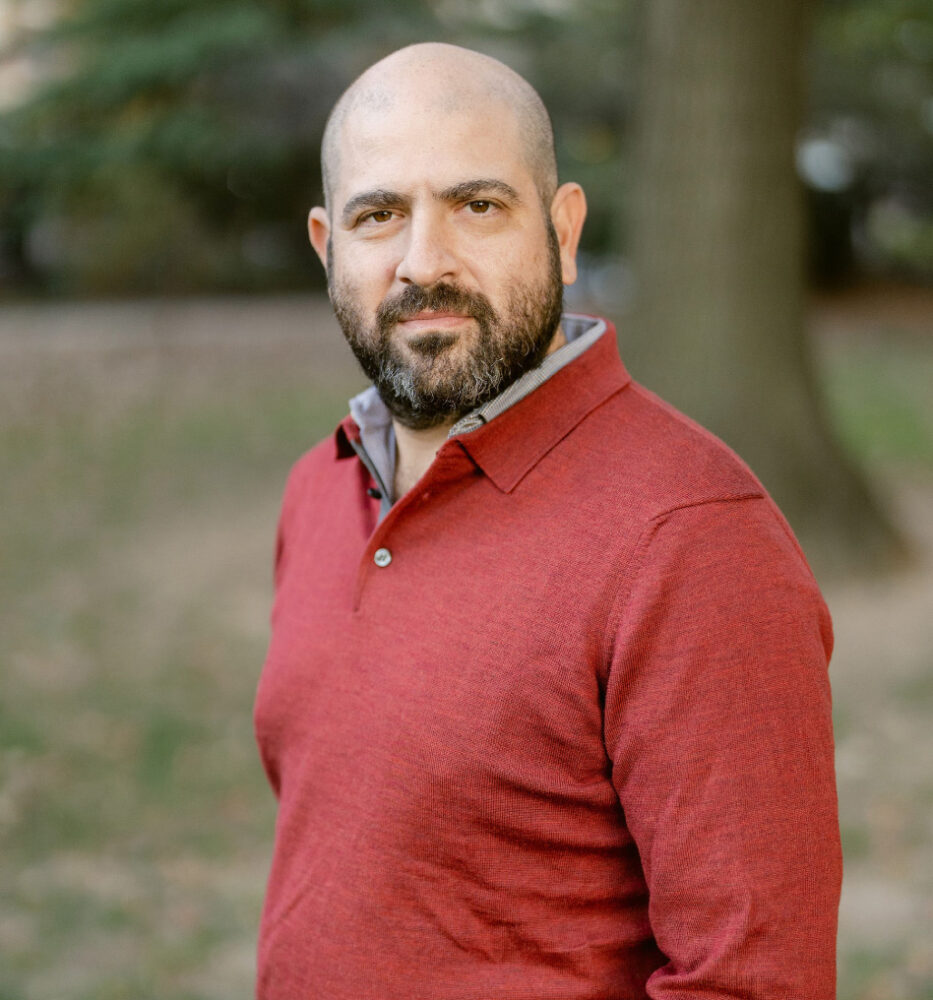Future Hospitality
podcast
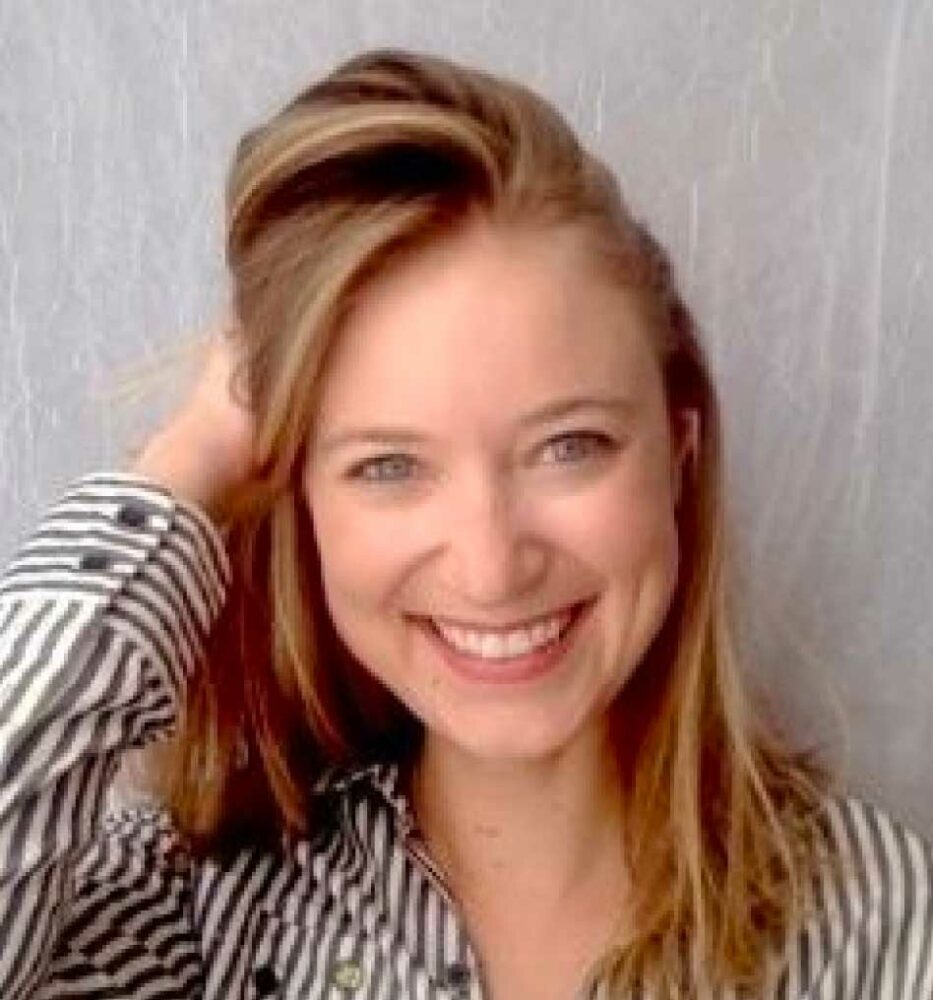
#14: Crafting the Guest Experience with Intention: Kathleen Bunnage
October 26, 2020
Jeremy Wells: Kathleen, thank you so much for joining us today. We’re really excited to have you on the podcast.
Kathleen Bunnage: Thanks. It’s great to be here with you both.
Jeremy Wells: So I stumbled upon Tallac a little while ago, and you guys are involved in some really great projects and properties and I just love everything that I’ve seen so far on your website. And after talking with you, I was really excited to get you on the podcast and give you some time to share some of the insights and success you guys have. So there’s probably some people listening that might not be familiar with you and Tallac. So can you give us a little brief intro about who you are and what you do?
Kathleen Bunnage: Yeah, absolutely. So I’m sure there are people who are not familiar with us. We are a management and operations support company located here in Lake Tahoe, California. So we were started in order to run the Coachman Hotel, which is a property that we own and manage here in Tahoe. And from that, we really grew to understand that there was a big need as far as management and operation support for small properties. The Coachman began as a 42-room hotel. It’s currently undergoing an expansion, but hotels in that small space and that under 80-room space are really underserved when it comes to property management and operations support.
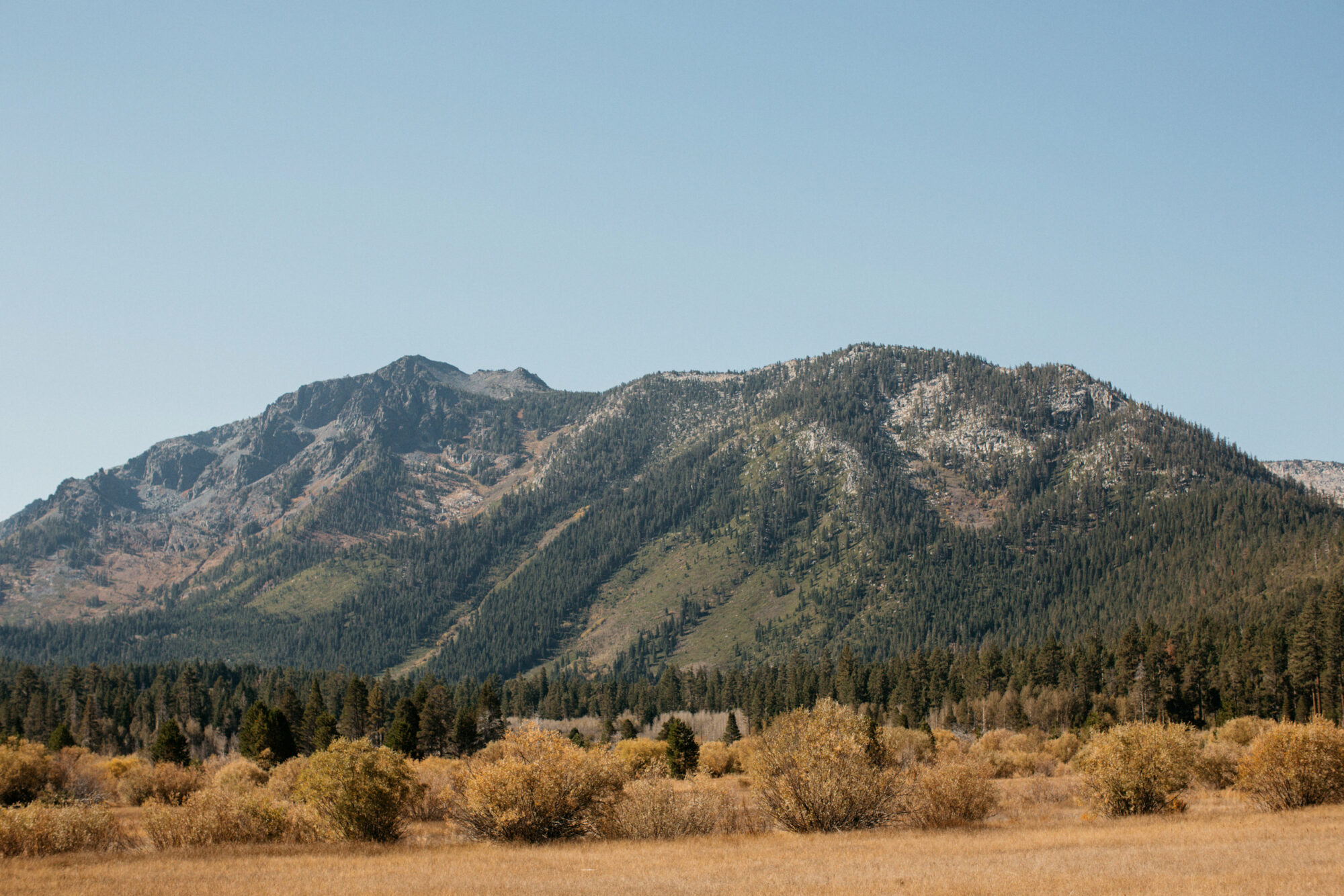
Jeremy Wells: Yeah. I think that’s something that’s been growing over, especially, the last decade. And then even now, we’re seeing those smaller properties becoming much more popular, given this current climate we’re in with the pandemic and everything. So it seems like that’s a great niche to be in for you guys.
Can a Smaller Property Work?
I was, frankly, kind of suspect that we could make a 42-room hotel work
Kathleen Bunnage: Yeah. It really became something that grew, I would say from a right place and right time, right situation. When I moved up here and I saw this 42-room hotel and started working with Justin, I was, frankly, kind of suspect that we could make a 42-room hotel work. I’ve worked in a lot of boutique spaces, but especially when you’re trying to work with affordable price points and you’re trying to make something that is really quality in terms of construction and renovation and design. That, to me, felt like a price point that would be very difficult to find success or a room count that would be very difficult to find success at. And I think it’s one of the great pleasures of my life and also great surprises that we have found a way to get scrappy, get creative and really build something successful on that base.
And as we saw that starts to develop, I think is when both Justin and I realized that we had a formula that we were really interested in being able to share both in more development projects of our own, but also with other operators who are interested in working in these spaces, because while the 42-room, that sub 80-room category has a lot of challenges, it also has some pretty incredible ways that you can operate a property and experiences that you can provide for your guests.
Jeremy Wells: Yeah. I think traditionally people have kind of thought that it’s very unlikely that you’re going to make a great profit with those smaller properties. So it’s cool that you guys have kind of cracked that code and we’ll dive into some of that here in a little bit. But I’d like to hear kind of just how you got your start in the hospitality industry.
Kathleen Bunnage: Yeah. Well, I think like many people hospitality was not on my radar. It was not my intention to jump into the hospitality field. I was getting a degree in biology and human biology and my mom actually at the time was brought in as originally a silent investor in a hotel development project in Portland, Oregon, which is where I’m from. So she got mixed up in that and circumstances being what they were ended up taking over as the managing partner of that project. And so I really watched someone dive into the hotel operations space who had absolutely no experience in that. And she did an incredible job putting together the right team, along with her management partner, to create something that has really had lasting success.
[I] just really realized how much I loved the hotel experience.
So I graduated in 2008, which as we all know is not a great time to be looking for a job, and ended up joining her and her partner in that project. And so worked with them for a few years and just really realized how much I loved the hotel experience. It was really a great fit for my personality, that ability to think critically to problem solve, but then also to provide a fun experience to see guests needs, to anticipate what those were and put together an experience that they were going to go home and write about. That was a really fun way of spending my time.
And so from there, I decided that this is really what I wanted to be doing and launched into working for various types of properties, moved around a little bit, working for smaller boutique properties, but then also larger, more corporate brands and eventually found myself in San Francisco working at a 500-room Union Square, San Francisco Property. And really it just sucked the life out of it for me. And so I did that for about three years and finally just realized I can’t do this anymore. I guess, hotels aren’t what I thought they were.
So I quit that and was actually in the process of going to business school when I met Justin, my partner at Tallac, and he convinced me to move up to Lake Tahoe and help him open this property called The Coachman. And as I alluded to earlier, I was slightly skeptical, but also loved Tahoe and was willing to take a chance. And I think that as soon as he and I started working together, we realized that we really viewed hospitality in the same way. We viewed the potential of a hotel experience in a way that was very aligned. And so I think because of that, we were able to create something very special here at The Coachman and we’re looking forward to recreating that in our own properties, as well as helping other people create those types of experiences.
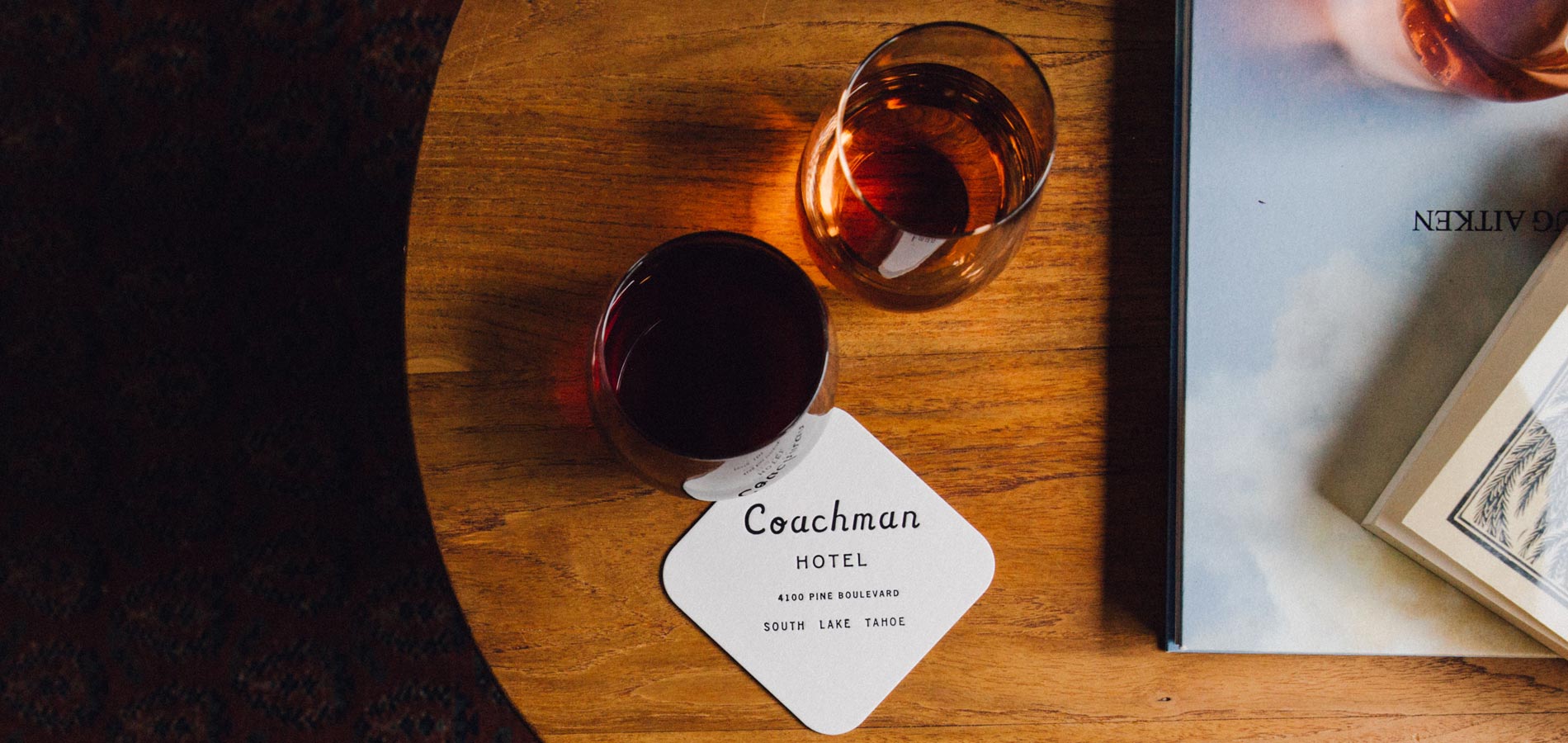
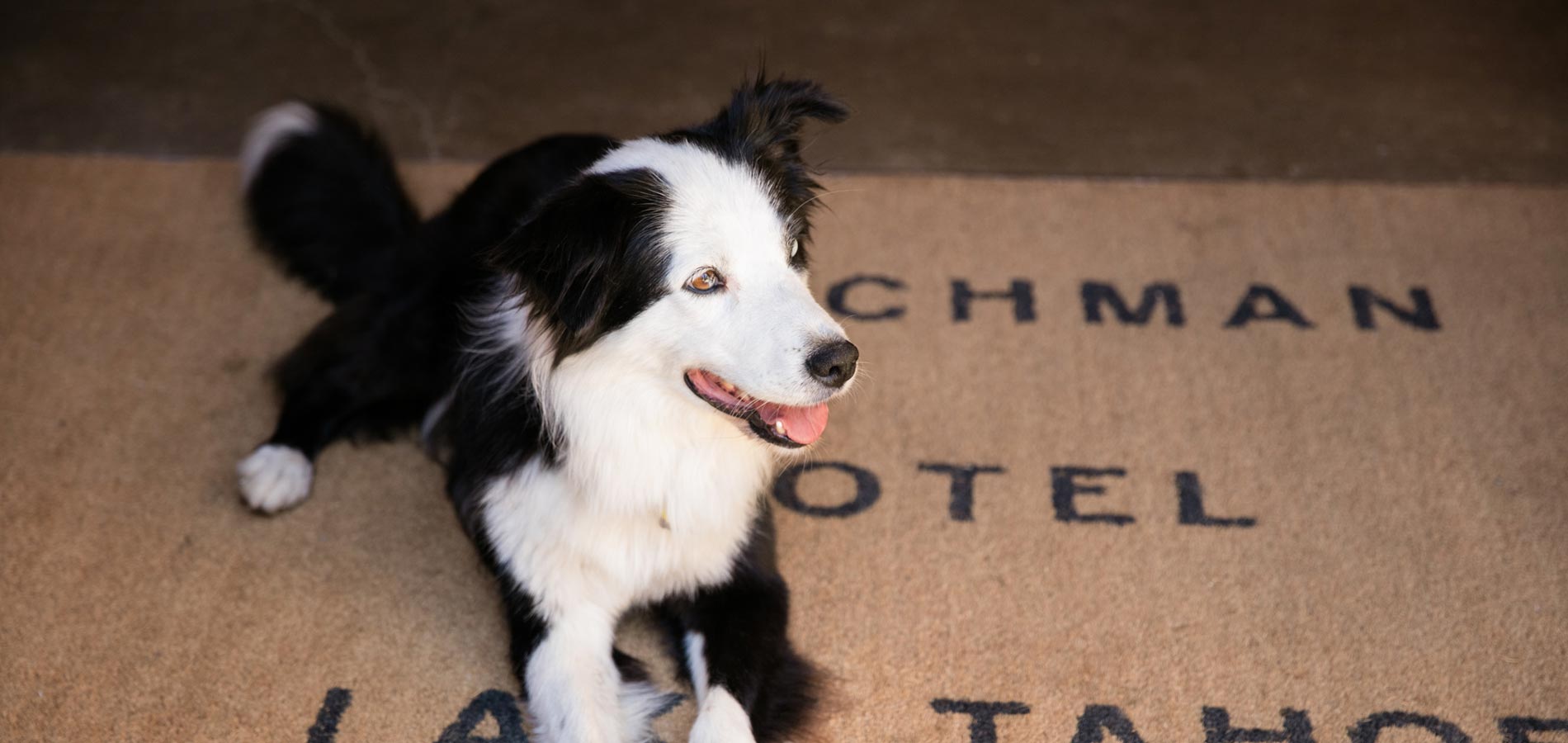
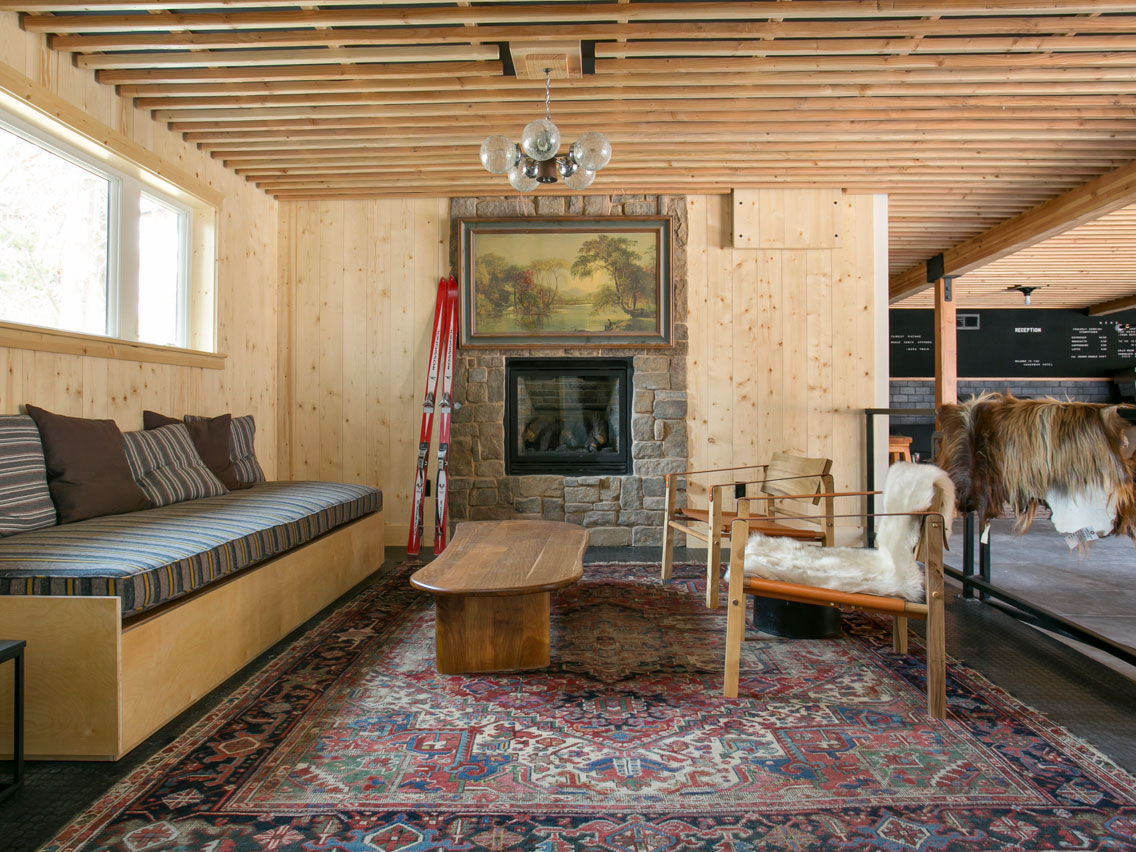
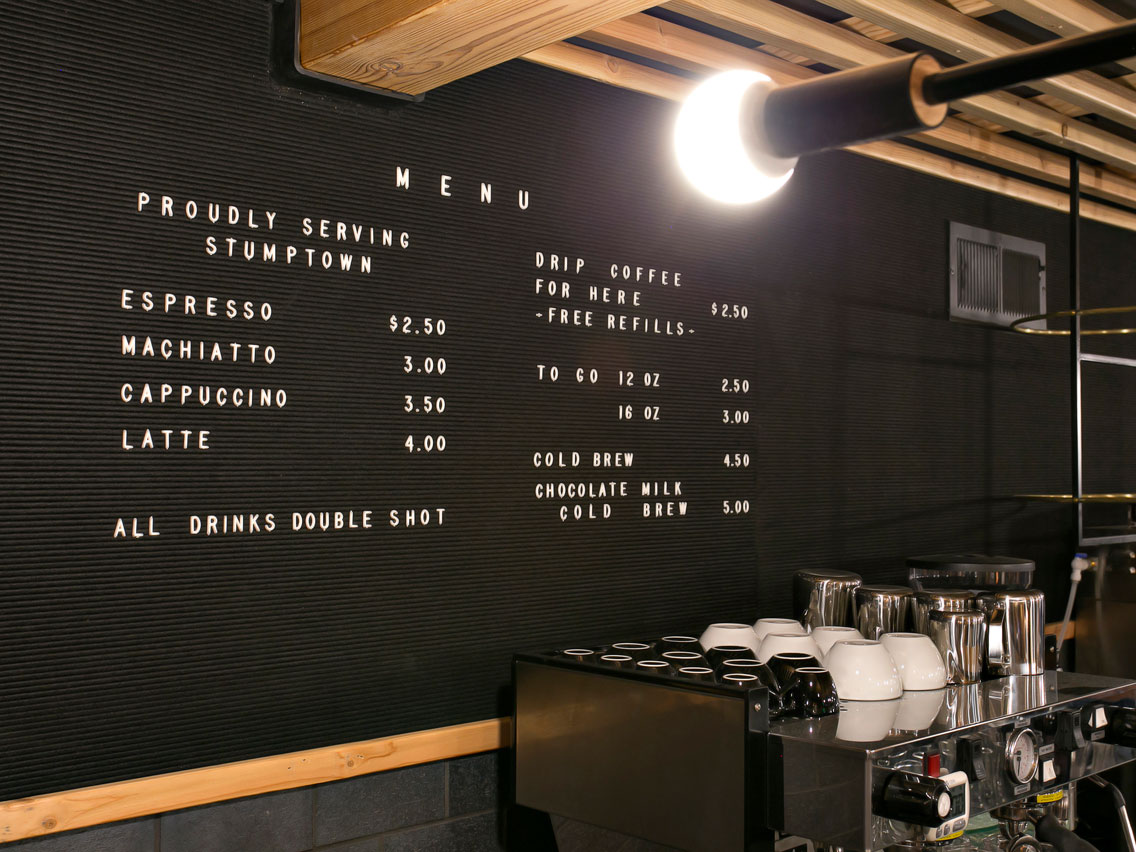
Dustin Myers: Yeah. That’s really cool. So you’ve kind of serendipitously found your way into the boutique, smaller markets and then got a taste of something bigger and find your way back. What are the most fun things about working with smaller properties that you’ve found?
Kathleen Bunnage: Well, you guys did an interview a couple of months ago with Bashar Wali, who’s a fellow Pacific Northwesterner, and somebody that I really admire, and one of the things that he talked about a lot in that interview was the difference between service and hospitality. And I think that a small property is ideally situated to be able to provide true hospitality versus service.
I think that a small property is ideally situated to be able to provide true hospitality versus service.
So when I was working at the property in San Francisco, we were exploring the idea of trying to move to a Forbes Five-Star rating, and so we did a ton of work around Forbes Training. And for those of you that are familiar with Forbes Training, it is the Forbes Five-Star Experience, it is a very scripted experience. And so ostensibly, you’re providing a luxury experience for a guest if you meet those standards. But I felt like we were just training a bunch of robots.
Dustin Myers: Yeah.
Kathleen Bunnage: So I think that that experience to me really highlighted the fact that my idea of a service experience of a hospitality experience was very different than a traditional luxury experience, or at least a traditional luxury experience as defined by some of the standards that we all buy into in the hospitality business.
Dustin Myers: True.
Kathleen Bunnage: So those small hotel spaces are much more, they’re much more nimble, they have the flexibility and they have the authenticity that I think allows them to create a very hospitable experience for guests as opposed to a service-based experience.
Dustin Myers: Yeah, absolutely. And I’d love to unpack that a little bit as far as what you’ve been able to do at Coachman and some of the other properties. What are some specific ways that you’ve been able to help cultivate that true hospitality experience?
Experience Starts with Authentic Identity
I really believe that that experience starts with an authentic property identity
Kathleen Bunnage: Yeah. Well, I really believe that that experience starts with an authentic property identity. One of the things we’ve been spending a lot of time on lately is trying to do exactly this, unpack what it is that we’ve done at The Coachman that’s really created, kind of that magical guest experience that we would say that it has, and I think that many of our guests would say that we’ve provided.
In comparing the guest experience at The Coachman to the guest experience in some of the other properties that I’ve worked with, one of the things that has really been striking as we’ve been diving into it is the fact that The Coachman has a very specific identity and it creates a very specific type of experience. So we don’t look at our guests and go, “Oh, you’re a corporate guest. You have these sorts of needs. Oh, you’re a family traveling. You have these sorts of needs. We’re going to anticipate those needs. We’re going to take these sorts of actions if you fit into this category.”
We don’t try to change that experience for different types of guests. We’re really creating one experience. The property has its own authentic identity.
Instead at The Coachman, we’ve really created a property identity around the idea that we are an accessible community-based property with an eye for a great design. And because of that, we don’t try to change that experience for different types of guests. We’re really creating one experience. The property has its own authentic identity. And I think that we do a great job in our marketing and in our operating practices of reinforcing that identity so that guests know exactly what they’re signing up for and what to expect.
Jeremy Wells: Yeah. Yeah. I think that identity is such a huge piece and you guys have really, I think, hit the nail on the head, especially with The Coachman and some of these other properties. It’s really inspiring.
Kathleen Bunnage: Thanks.
Jeremy Wells: And I’d love to hear. You mentioned in our previous phone call before the recording, you mentioned some key mantras for success that you guys have at Tallac. Would you mind sharing those?
Kathleen Bunnage: Sure. Sure. Well, definitely, and the first one goes back to what we were just discussing, which is be confident in your property identity. When you’re creating a hotel in this sub-80-room size, then what you’re really doing is you’re creating a story. And that story is going to drive all of the decisions that you’re going to make from the amenities that you’re going to offer to the marketing styles that you’re going to engage in, to the people that you’re going to hire. This story is something that will help you really be specific about what you’re providing and it will enable you to do the thing that is most important to me in hotels, which is that the things that you do set out to do, you execute flawlessly.
We should really be executing any aspect of the guest experience to the highest standards possible. And you can only do that if you have a clear driving identity for your property and a clear driving goal around what you’re trying to create. And so then that leads into the second mantra that we have for these properties, which is add incrementally. It’s very, very easy to get lofty in your ideas, especially if you’re a developer or an owner of a new property, to get very lofty in the ideas of what you’re going to provide, what services you’re going to provide, what cool little hooks you’re going to have for your guests.
And to me, I think that those items or things that you want to be ready to add when the time comes, but the most important thing is that you focus on those, the guests touch points that every single guest is going to go through before you get into complicating your operation. So if you can focus on how the guests makes their reservation, how they communicate with you, how they get into and out of their room, how they spend time in the public spaces and then how you say goodbye, if you can execute those things flawlessly, then you’re ready to start adding in other operational wrinkles.
But far too often, I’ve talked to operators with small properties who just want to do everything right out of the gate. And if you do that, you’re going to complicate the ability to execute on those key touch points in the short term.
Dustin Myers: Yeah. As branding people, we love to hear that, just the focus and importance on setting that compass from the get-go and understanding who you are and who you want to be, and then allowing all of the touch points and decisions to flow out of that.
Importance of Guiding Principles for a Hotel Brand
Well… frankly, just makes things a lot easier because then you have a guiding principle to go back to
Kathleen Bunnage: Well, it also, frankly, just makes things a lot easier because then you have a guiding principle to go back to. There’s a lot of decisions. People don’t realize I think how many decisions are made every day in the operation of a property, but also in that development phase. And so if you can clue in on what your guiding light is, what the identity of the property is, what are the experiences that you’re trying to create, it’s going to help you streamline a lot of those decision-making touchpoints along the way.
Jeremy Wells: Definitely. Yeah. The mantras and the experience that you guys are cultivating, like you said, there are so many important touchpoints for the guests and you touched on some of those and the importance of that. But one thing I was curious about is being a management company, obviously creating a team culture and some sort of good engagement and vision casting for your team and your mantras and your branding and your identity that you’re building, how that kind of leads your team to be more bought into the mission as well? How do you guys approach that?
Kathleen Bunnage: Yeah. So as a company, we try to focus on people, places, and personality. And obviously the people piece goes to not only our people, but also our guests, the places is very specific to the locations that we choose to operate in and then the quality of the physical locations that we intend to operate. But the last piece, which is the personality point, that’s something that I feel like we have really focused on with all of our employees. We don’t ask our employees to wear uniform, which may seem a little bit strange, and it definitely felt strange to me coming from the corporate world. When we first decided to implement that, I was very concerned about what how that would shape the guests and staff relationship and whether it would make guests feel confused.
What it’s done instead is it’s really allowed our employees to feel that they are valuable, that who they are is important to the operation of the property and who they are is important to what we’re trying to create as far as the guest experience. Those employees come to work every day in whatever clothing makes them feel best and they get to stand at a bar behind a desk, out on a patio with guests and have the types of conversations that you would have if you were just meeting a person at a bar on a patio during your stay in Tahoe.
So I think that it really helps to solidify this idea that our employees are valuable just the way that they are and that we want them to contribute their own unique personality and their own unique aspects to our guest space at The Coachman.
Dustin Myers: Yeah, for sure. I know that you see a lot of opportunities and potential within smaller properties. From an operational side, what are the main challenges that you’ve seen and how have you kind of had to work to overcome those?
Kathleen Bunnage: Yeah. Well, I mean, there are kind of two pieces to this question. I think the biggest challenge to operating efficiently and therefore being financially successful often starts before the property has even begun development and that’s in the underwriting phase. You need to be honest about what sort of NOI margins a property of this size is going to return. It is definitely harder to be financially successful at these smaller sizes. And therefore, I think when new developers or new owners in this space get out and start doing their research and learning about industry standards for expense ratios and such, it’s very easy to think to just apply those industry standard to the small property space. We have a little bit of a different way that we think about that and we understand the fact that there are certain areas where you are going to spend more relative to your properties overall revenue when you’re in this smaller space.
as you start feeling like you have to play catch up, you will find yourself cutting corners and seriously hurting your guest experience.
So if you start off on the right foot by being honest with your key stakeholders, by being honest with any debt service that you’re going to take on about what you need to do to be successful, it’s going to set you up in a way that you don’t feel like you’ve over promised and under-delivered right off the bat. And as an owner, as a developer, as an operator, it’s really important that you feel successful and that you don’t feel like you’re trying to play catch up because as soon as you start feeling like you have to play catch up, you will find yourself cutting corners and seriously hurting your guest experience.
Jeremy Wells: Yeah. Yeah. I’ve heard in other interviews with people that manage smaller properties and have some experience with that, it’s sometimes really difficult to add a lot of revenue drivers to a smaller property. And so I’ve heard that and I’d be interested in your thoughts on this too, but is smaller properties the opportunity is a lot more centered around increased efficiencies and just adding a tremendous amount of value to the guests versus just trying to add a bunch of different revenue opportunities?
Kathleen Bunnage: Well, two things. Yes. The basis I would say is absolutely operational efficiency. So that’s something that we focus very heavily on and the main driver of operational efficiency in this day and age obviously is the technology that you choose to use. It is extremely important that small properties are choosing technologies that integrate seamlessly because we don’t have the luxury of going out and getting an enterprise solution. We have to patchwork together small solutions that ideally integrate, because if you’re getting a guest communication platform from one location and then you’re getting a point of sale software from somewhere else and then your property management system lives in its own universe, you have to take your employees’ man-hours to get the information back and forth between all of those tools.
That does two things. It introduces the opportunity for human error, obviously, but more importantly, it sucks time from your employees away from what they really should be doing, which is they should be chatting with your guests, they should be pouring them a beer, they should be leaving something in their rooms, they should be just asking a guest how the hike that they went the day before was. And if they’re sitting there having to manually input information, that is going to be a really big detractor from their ability to create the kinds of guest experiences that we’re looking for.
Jeremy Wells: Yeah, definitely. I see the huge opportunity and value of that in these sized properties.
Kathleen Bunnage: Yeah. We’re working with a few different small operators who are trying to create these small properties where we have actually come in to provide them some of the back office services, because I think the thing that we noticed we struggled with the most at The Coachman were some of those kind of behind-the-scenes roles like bookkeeping and financial reports, revenue management was a huge thing. Yeah, you can outsource it to an app to do, but you still leave a lot on the table when you don’t have somebody who knows the property and who knows what’s going on, keeping an eye on there, an eye on that pulse. And I will tell you the GM has a lot better things to do at a property like this than to sit and watch what all of their comps are doing as far as rates.
So that’s one of the areas that Justin and I are really excited to be adding some value and helping to support and facilitate the development of more of these smaller properties, because those back office areas, they’re the ones that are key to being financially successful, but also they’re the least demanding in the immediate moment and therefore often gets put on the back burner.
Dustin Myers: Yup.
Jeremy Wells: Yeah. So you’ve mentioned a few things that you and Justin are looking forward to with Tallac and kind of the future of what’s on your plate and what’s in your pipeline and things like that. Can you kind of give us some insight aside or details about what’s in store for you guys?
Kathleen Bunnage: Yeah. Well, obviously in this, new COVID world, we have experienced some changes as many people have. We’ve definitely had some a big rock thrown in the hospitality pond over the last couple of months. We are very excited though. We’ve kind of run the gamut of the projects that we had in development. We’ve had some that have just come straight off the table. We’ve had others that have been delayed and then we have some that are just moving forward full steam ahead. So we’re very excited about some of our own development. And obviously this process of taking what we’ve learned from The Coachman and going out to some new markets that we’re really looking forward to being in and seeing what kind of an identity and experience we can create at those locations. But then the other side of it that we’re both extremely excited about, as I mentioned, is just some of these new operators and partners that we’ve been working with who have incredible ideas, who have a ton of passion for this space, and who are really interested in creating these sorts of very intentional design-driven, small boutique hotel assets, and we’re really looking forward to helping facilitate the back office side of those properties in order to see them realize their new goals and their visions. So I’m hoping to see some really great projects of that nature come online in 2021.
Looking into the Future
Jeremy Wells: Yeah. Definitely. I am so curious on your guys’ projects page and website. You have the Winter Garden. What can you tell us about that?
Kathleen Bunnage: Orlando has a large kind of network of small towns around it that kind of create the math that is Orlando. One of these towns is called Winter Garden and it is an adorable town. Not being from Florida, I had very preconceived notions about what Florida was like. However, Justin an Orlando native and he was adamant that this is a great location. And on my first visit, I was just astounded, adorable main street, with walking distance to restaurants. They’ve got a farmer’s market that happens once a week and a splash pad for kids that there’s always families hanging out at. So this little town is 20 minutes from the parks and you are easy access to downtown as well, but it feels like you are a world away from the Disney, industrial complex.
So we’re really excited to be working with the town there and some local partners to do a ground-up build of a 65-room hotel with two food and beverage outlet and an event room as well an event deck. So we’re really looking forward to that project, which we’ll be getting underway at the end of this year and we’ll be looking probably at an early 2022 opening on that property.
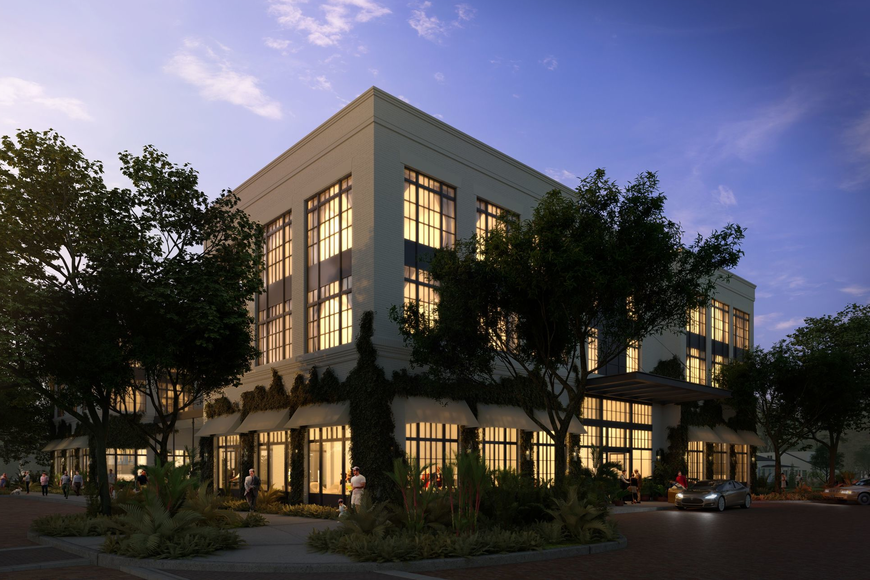
Jeremy Wells: Really exciting. That’s cool. Is there anything else? Looking into the future personally or otherwise that excites you or that you’re looking forward to?
Kathleen Bunnage: Oh, man, I’m just excited for COVID to be over. I think it will be a really interesting world that we find ourselves in over the next couple of years and it’s going to take a lot of creativity and attention to detail, attention to traveler’s needs in order to continue to be successful in the post-COVID world. So I think that’s a challenge that we’re really looking forward to and we feel again like this sort of small hotel space where you can customize the experience to really create something that is flexible and nimble, but also very appropriate to the current moment is a space where people are going to have a lot of success.
Jeremy Wells: Definitely. Well, I’m excited about what you guys have in store and thank you so much for joining us today. It was really a pleasure meeting with you and chatting with you.
Kathleen Bunnage: Thank you so much.
[End]
